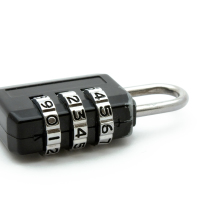Now that the holidays are over, and we are once again settling into our daily routine, we tend to start doing things we have put off until the holidays were over. We go back to our usual activities, whether it is work or school, and continue life as it was before the holiday rush.
Now is a good time to take a look at your computer security, and setup, to make sure that your computer isn’t compromised in any way. Having a compromised computer can be dangerous, especially if any of your data is accessed. There are a few preventive measures you can take to help increase your computer security.
Computer Security Suggestions

There are many things you can do to make sure you computer is as secure as it can be. While your system probably won’t be completely secure, every bit you can do can give you some protection.
- Install anti-virus and anti-malware software. Installing, and using, a good anti-virus and anti-malware application is a common thing to do for each computer. Ensure that the applications are updated, and that they are run at least once a month.
- Install a software firewall. Windows, by default, includes a built-in firewall. The firewall is pretty good, and the latest versions seem to have more options, but a standalone software firewall can have more options and more security features.
There are several good firewalls that are free to install and use. If you need help, contacting a company like Firewall Technical can ease the burden of set up.
- Use a hardware firewall. If you use a router at home, chances are you already have a hardware firewall as they are usually built into the router. If you have broadband Internet with no hardware firewall, I suggest you go a buy one as it provides great protection to everything connected to it.
- Install the operating system patches. Operating systems on usually patched on a regular basis, and you should make sure that you have all the latest patches installed. Many of the patches contain security fixes to close known security holes in the system, so update your operating system.
- Upgrade and update installed programs. Ensure that you use the most updated version of each application that is installed on your computer, or that all the patches have been installed. Much like operating system patches, software patches may also close known security holes.
- Don’t use an administrator account. If possible, switch to a standard user account instead of an administrator account. Having a standard user account will limit what you can do on the system, but also applications, especially unknown ones. On many operating systems, you can always type in the password of an administrator account if something needs to be installed or changed on the system.
- Create longer passwords. Now is the time to also think about changing passwords for various accounts. The longer the password, the harder it is to crack, so choose ones that are longer than ten characters.
These are several options that you can follow to help keep your computer secure. There are many other options, but following the above ones can go a long way to keep you and your data protected.
